The communist government of North Korea revealed on Thursday that it held multiple military exercises aimed at practicing nuclear weapons assaults on South Korea and “occupying the whole territory” of the country.
The Korean Central News Agency (KCNA), the communists’ state media outlet, detailed the exercises and claimed them necessary in response to the Ulchi Freedom Shield annual military exercises currently taking place with American and South Korean troops. Ulchi Freedom began on August 21 and is expected to have some exercises continue into September.
Ulchi Freedom Shield exercises have been a staple of the U.S.-South Korean partnership for years. Washington, under former President Donald Trump, suspended the exercises briefly in 2018 in recognition of communist dictator Kim Jong-un agreeing to meet with him in Singapore, the first such meeting between the heads of state of both countries. By August 2018, however, Secretary of Defense Jim Mattis confirmed that the drills would go on.
Kim’s public belligerence has escalated significantly under leftist current President Joe Biden, who has failed to organize any meaningful high-level exchanges with North Korea. The White House claimed this month that Biden offered Kim an in-person meeting “without preconditions,” but Kim declined.
While Biden has treated North Korea’s nuclear threats as a second-tier foreign policy issue, conservative South Korean President Yoon Suk-yeol has worked to reverse the conciliatory policies of left-wing predecessor Moon Jae-in, publicly speculating that he would consider a nuclear weapons program for South Korea and convincing Biden to reverse decades-old policy and send a nuclear-armed American submarine to South Korea in July.
Biden’s absence on the issue and Yoon’s assertiveness followed Kim ordering his regime to deliver an “exponential increase” in North Korea’s nuclear weapons arsenal in late December.
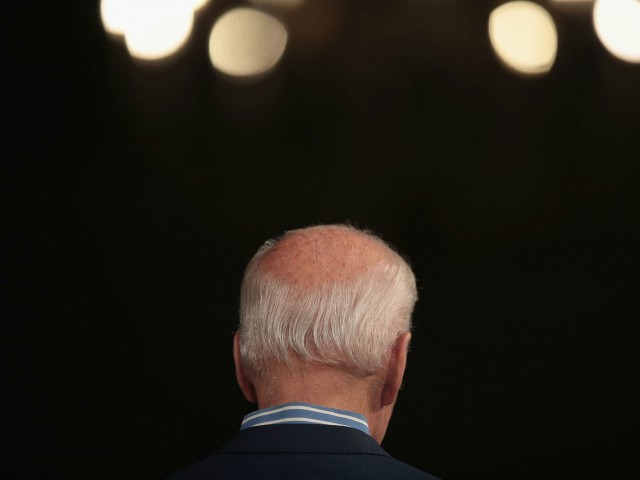
Democratic presidential candidate and former vice president Joe Biden speaks to guests during a campaign event at The River Center on May 1, 2019 in Des Moines, Iowa. The event was Biden’s final rally in the state, wrapping up his first visit since announcing that he was officially seeking the Democratic nomination for president. (Photo by Scott Olson/Getty Images)
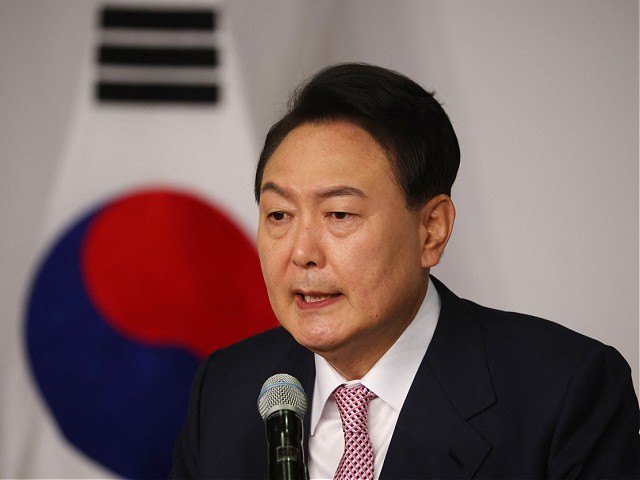
South Korea’s then-President-elect Yoon Suk Yeol speaks during a news conference at the National Assembly in Seoul, South Korea, on March 10, 2022 (Kim Hong-ji/Pool Photo via AP, File).
On Thursday, KCNA claimed Kim’s army is working to ensure they can properly aim the bombs. KCNA described the Ulchi Freedom exercises as “little short of informing the world that they made the preemptive nuclear strike at the DPRK [North Korea] a fait accompli.” Allegedly in response, Pyongyang “staged a tactical nuclear strike drill simulating scorched earth strikes at major command centers and operational airfields” in South Korea.
“The missile unit fired two tactical ballistic missiles northeastward at Pyongyang International Airport and correctly carried out its nuclear strike mission through air bursts at a preset altitude of 400 meters above the target island,” the communist propaganda outlet claimed.
In a separate report, KCNA claimed Kim Jong-un personally oversaw a command drill by the Korean People’s Army (KPA) meant to simulate the colonization of South Korea.
Kim “acquainted himself with the plan of the drill staff, which is aimed at occupying the whole territory of the southern half [South Korea],” KCNA claimed.
“He stressed the need to pay the greatest attention to making the enemy dispirited, throwing their combat action into confusion and paralyzing their will and ability to fight a war,” the state outlet relayed, “from the outset by dealing heavy blows at their war potential and war command center and blinding their means of command communication at the initial stage of operation.”
The plan reportedly involved “making simultaneous super-intense strikes at the pivotal military command centers, military ports, operational airfields and other important enemy military targets and core objects whose destruction may cause a series of socio-political and economic chaos.”
The South Korean Joint Chiefs of Staff (JCS) confirmed on Thursday that North Korea fired two ballistic missiles into the Sea of Japan (or East Sea), an apparent protest against the joint exercises. The nation’s Unification Ministry issued a statement threatening Pyongyang with “overwhelming responses” if it continued to shoot missiles at its neighbors.
“The more the North is obsessed with military threats and provocations, the more it will face overwhelming responses by South Korea, the U.S. and Japan,” a Unification Ministry official said.
Japan also responded to the missile firings, as the East Sea straddles Japan and the Korean Peninsula. Conservative Japanese Prime Minister Kishida Fumio, who has dedicated much of his foreign policy to bringing Tokyo closer to Seoul and Washington, described North Korea’s threats as intolerable.
“These conducts pose threats to peace and stability of not only our country, but of the region and international community, and cannot be tolerated,” Kishida told reporters.
Japan’s Defense Ministry requested a record-high budget on Thursday of $53 billion to protect from both North Korea and its top ally, communist China, 13 percent higher than last year’s budget and marking a growing trend of the country, which has no official army, repeatedly breaking its spending records on defense.
Kishida agreed in a meeting alongside Biden and Yoon at Camp David this month to have Japanese Self-Defense Forces (SDF) participate in joint trilateral exercises alongside South Korea and America on a regular basis, a significant increase in the military collaboration between South Korea and Japan. Imperial Japan’s history of human rights atrocities against Koreans has poisoned diplomacy between the countries for decades, a reality Yoon has attempted to overcome to strengthen his country’s positions against North Korea and China.
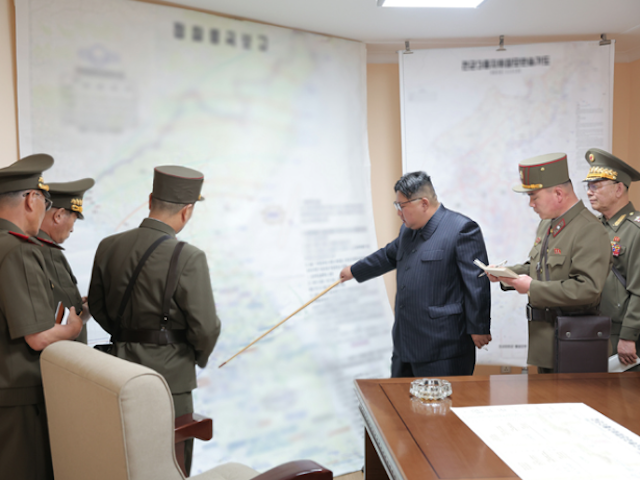
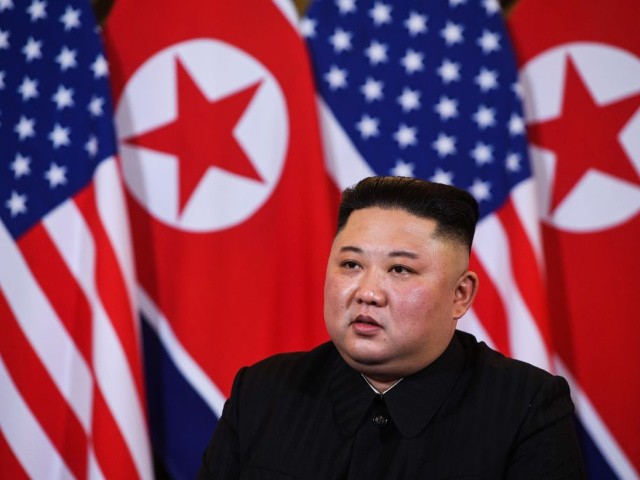
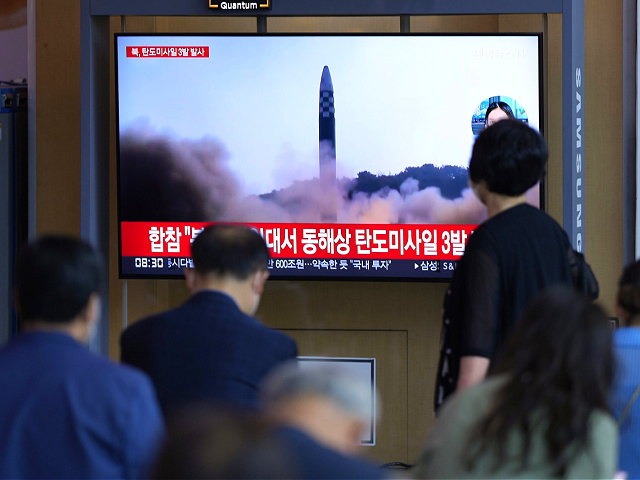
COMMENTS
Please let us know if you're having issues with commenting.